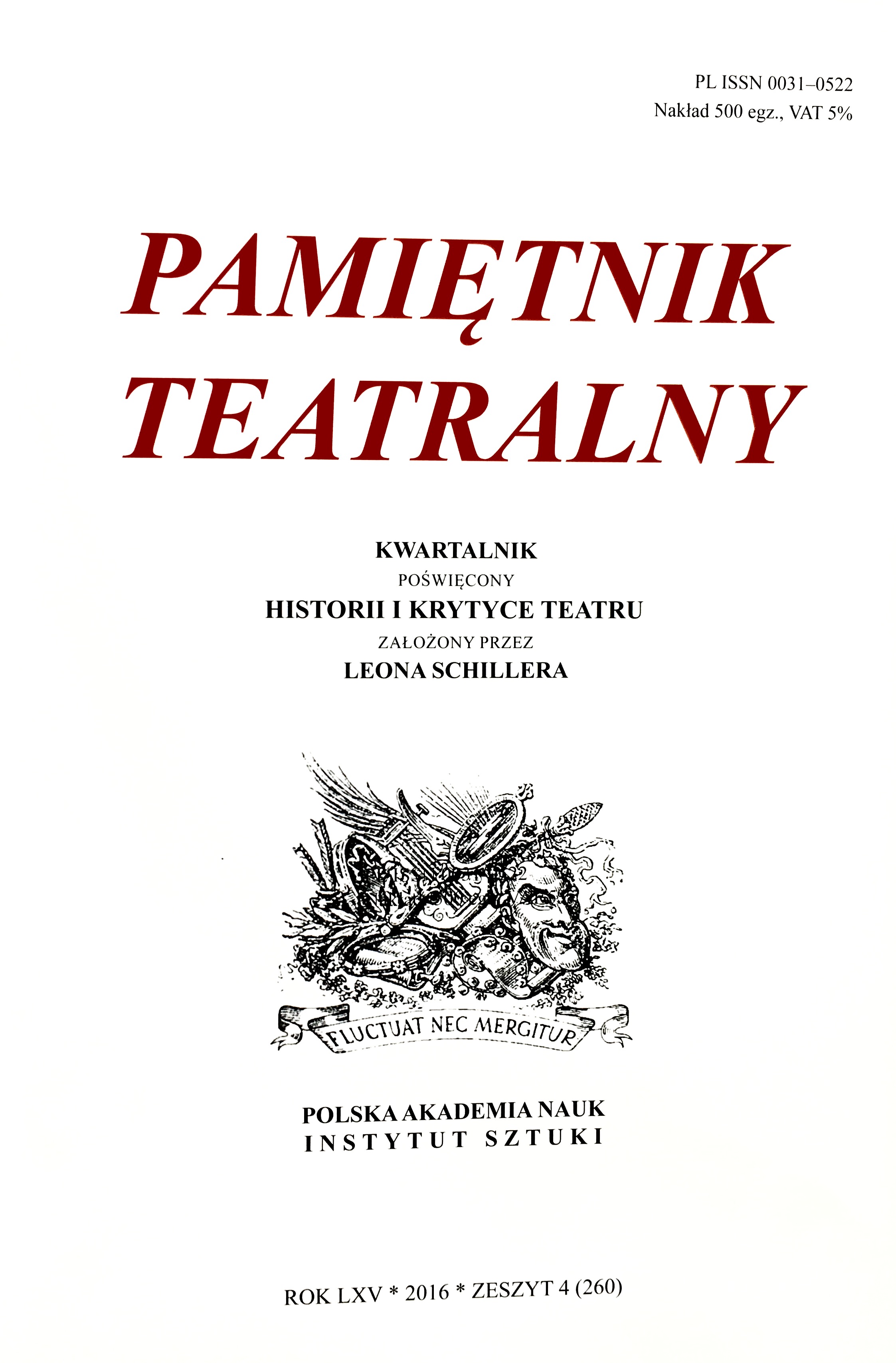Witkacy – nasz współczesny
Witkacy—Our Contemporary
Author(s): Janusz DeglerSubject(s): Theatre, Dance, Performing Arts
Published by: Instytut Sztuki Polskiej Akademii Nauk
Keywords: Witkacy;
Summary/Abstract: Czesław Miłosz was wrong about Stanisław Ignacy Witkiewicz when he predicted in his Traktat moralny that “Not for a hundred years, I guess, | Will his books ever come to press” [“W ciągu najbliższych stu lat chyba | Nikt w Polsce jego dzieł nie wyda”]. Next year a 26-volume edition of S. I. Witkiewicz’s Dzieła zebrane (‘Collected Works’) will be completed, and thus all of his surviving texts (including seven volumes of correspondence) will be available in critical edition. Banned in 1949–1955, Witkacy was reclaimed for Polish culture in the process of political change in 1956. He has been with us ever since, surprising us with how often his oeuvre bears on the present. His work has the extraordinary capacity to renew meanings and to resonate with what is happening at a given moment, in changing political, social, and artistic contexts. There appears to be a definite pattern to the post-war reception of his oeuvre: there is a surge of interest in it whenever an important event followed by some major political shift occurs (December 1970, August 1980, December 1981, June 1989). The stage history of The Shoemakers, the most outstanding political play by the dramatist, considered to be on a par with The Undivine Comedy by Zygmunt Krasiński and The Wedding by Stanisław Wyspiański, confirms that assertion. One of the main characters of the play is Gnębon Puczymorda (Pugnatsy Jawbloatski in Daniel Gerould’s translation), an embodiment of the vices of Polish nobility which Witkacy thought to have caused the downfall of Poland in 1794 and whose remnants he still detected in the social and intellectual life of Poland. Witkacy described and attacked them fiercely in his 1936 study Niemyte dusze (‘Unwashed Souls’), though, probably due to this fierceness, no publishing house decided to publish it in his lifetime. The historiosophy of Witkiewicz turned on a vision of happiness enjoyed by the whole of humanity that, however, terrified him because he assumed it would be achieved in an egalitarian, perfectly well organised society resembling an anthill where there was prosperity, equality, and justice but no room for any expression of individualism. Such society would necessarily eradicate what Witkacy believed to constitute the essence of our humanity, i.e. the ability to experience metaphysical feelings. He tried to warn us of the impending danger, even though he realised that the process was irreversible. Nevertheless, Witkiewicz thought it was an artist’s duty to try to stop or at least slow it down. This was the role he ascribed to his art. On 18 September 1939, Witkacy committed suicide. Czesław Miłosz emphasised the symbolic significance of this final gesture of life in the second stanza of Traktat moralny: “He deemed death to be so splendid | That what he’d begun, with a razor he ended” [“Śmierć uznał za rzecz tak zaszczytną | Że to, co zaczął, skończył brzytwą”].
Journal: Pamiętnik Teatralny
- Issue Year: 260/2016
- Issue No: 4
- Page Range: 7-14
- Page Count: 8
- Language: Polish

